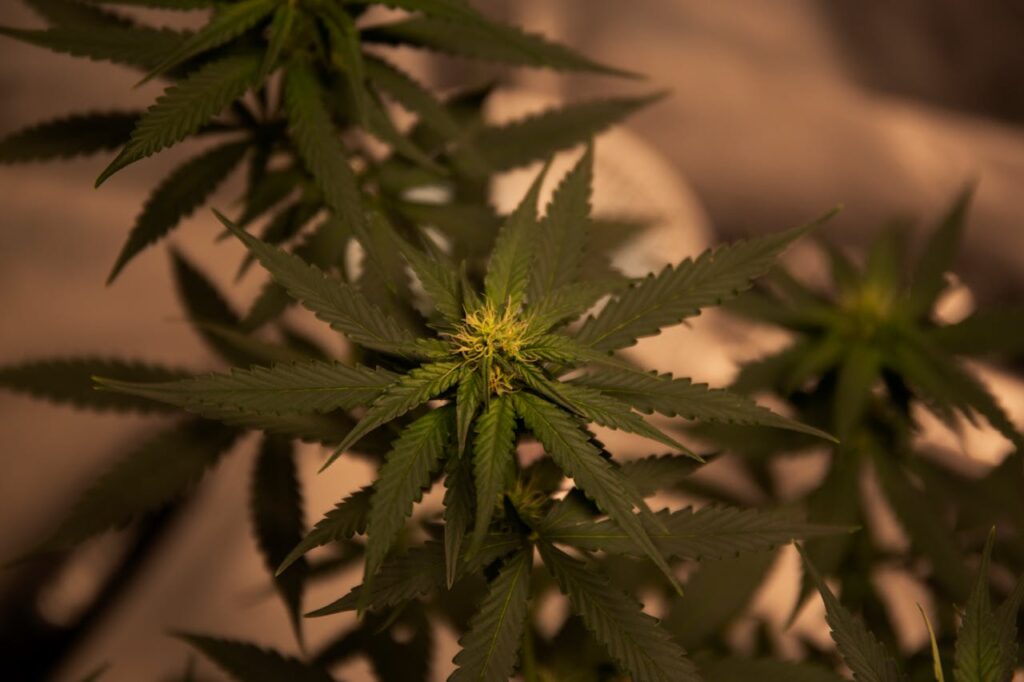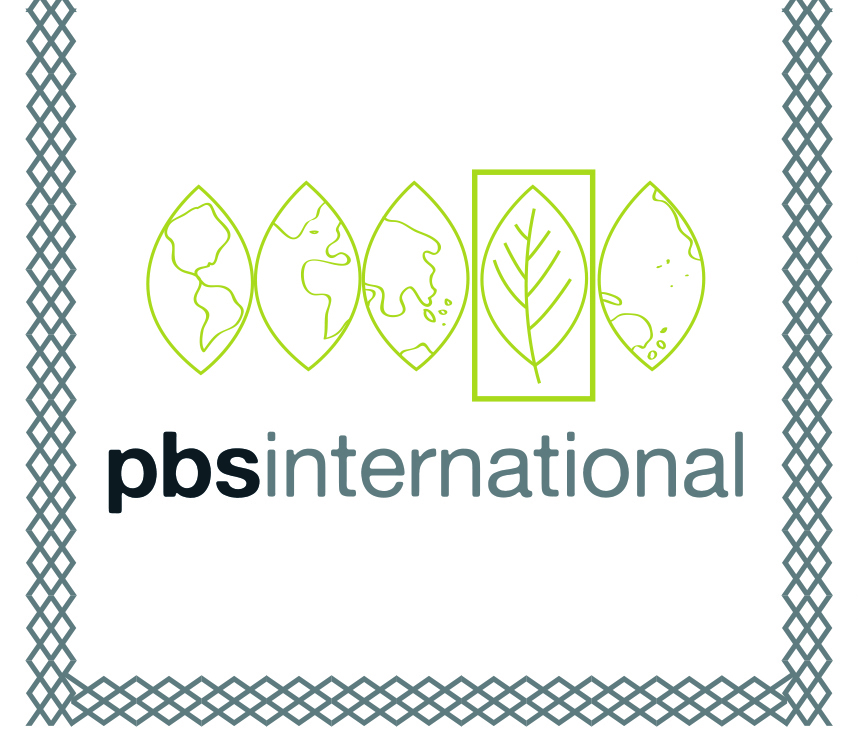Cannabis sativa, part of the Cannabaceae family, is a versatile crop with a wide number of applications, such as medicinal, recreational, material, and more. However, cannabis has a long history of prohibition – the crop was declared illegal in many countries due to concerns about its safety in recreational use, and it is only in recent years that attitudes and laws have changed to legalise its production.
As a result of this prohibition, until recently there has been little formal research and scientific evidence into breeding cannabis, and much of what we do know has come from underground breeders.
In this blog, we’ll be shining a spotlight on cannabis – its market background and surge in growth, the challenges of breeding this crop, and how PBS International pollination control products support customers in overcoming these challenges.
Cannabis market background
Changing attitudes towards cannabis are reflected in the rapid growth of this market. The predicted compound annual growth rate (CAGR) is 2.34% between 2025 and 2029, from USD $68.47bn to USD $75.09bn. [1]. These figures include both pharmaceutical and recreational cannabis, as well as CBD products, signifying growth across a variety of applications. This growth is no doubt driven by three key factors – an increasing number of countries decriminalising and legalising the use of cannabis; the growing influence of online retailers; and improved cultivation strategies making it easier to breed and grow cannabis at scale.
Of course, the regulatory landscape differs greatly for hemp production. Low-THC cannabis sativa can be grown in fields for CBD production, subjecting it to the same legislation as hemp production. Hemp growing is far less stringently regulated than high-THC cannabis growing, so it’s important to recognise that the differences in regulation also play a part in the evolution of this industry.
Regardless of end-usage of cannabis sativa, the breeding challenges remain the same across cannabis and hemp production. So, how can cannabis and hemp breeders face these challenges head-on?
Cannabis breeding challenges and how to overcome them
Cannabis is a complex plant to grow, and breeding specific characteristics and genotypes requires a careful approach to help mitigate some of the challenges that come with breeding new varieties.
One challenge that cannabis breeders face is managing sex reversal. Cannabis can exist in three sex states – male, female, and hermaphrodite – none of which are particularly stable and can easily change, particularly in humid conditions or when under stress. If a cannabis plant goes through this process in an unplanned way during the breeding cycle, this can cause genetic contamination to other plants in the vicinity.
Another challenge is pest and disease control – cannabis plants are notoriously prone to pest infestations and diseases at various stages of the growing cycle, which makes their mitigation imperative to ensure a successful harvest. For example, botrytis infection (a common fungal disease) can negatively impact seed production, and typically occurs after the male plants shed their pollen – so breeders must ensure that the growth timings of the female and male plants are carefully managed, and also ensure that pollination control strategies allow for plenty of space around the plant, to avoid contamination and mitigate the risk of botrytis forming, Spider mites, meanwhile, target female flowering plants, often killing the flowers before seed maturation, so female plants must be carefully monitored and managed to ensure successful seed development.
And even the most natural process – pollination – poses challenges! Cannabis is a wind-pollinated plant, and cannabis pollen in particular is very small and therefore disperses widely. When trying to breed very specific characteristics into a cannabis plant, this poses a significant risk, as errant pollen from another plant can cause contamination. Therefore, plants must be carefully isolated to ensure no unwanted pollination events occur.
How PBS International products support cannabis breeding
PBS International works with a number of cannabis and hemp breeding and research organisations around the world, so we’re familiar with the challenges posed. We support customers in overcoming these challenges by offering a range of pollination control products, including pollination bags (also known as crossing bags or selfing bags), and larger scale solutions such as tents.
PBS pollination control products are predominantly used to contain plants and allow them to grow whilst being protected from contamination such as pollen and pests. However, these products have also been proven to protect plants from other external factors such as extreme weather conditions and bird damage. They are essential to a plant breeder’s toolkit, as breeders must often maintain very particular growing conditions to ensure successful breeding of specific cultivars.
Our pollination control solutions work better than traditional paper bags thanks to our proprietary duraweb™ material. duraweb™ is made up of randomly laid fibres, creating a ‘treacherous path’ that makes it difficult for unwanted external pollen to pass through. Despite the material’s ability to keep pollen out, it offers more breathability and airflow than traditional paper or plastic bags. Available in a range of sizes, this means that breeders can choose larger bags to accommodate more space around the plant, helping to keep humidity levels low – and for cannabis breeders, means reduced risk of both mould incidence and unplanned sex reversal at the wrong stage of the breeding process.
We have also tried and tested duraweb™ in a range of colours, and determined that the white material is the best for allowing light to pass through – meaning plants sealed within PBS International bags and tents are still able to grow and photosynthesise, while being protected against external contamination.

Where to purchase PBS International products for cannabis breeding
We supply cannabis and hemp breeders around the world with crossing and selfing bags and tents in a variety of sizes, to suit a wide range of projects. Some of our smaller pollination bags are suitable for tying around individual branches, while some of our larger crossing bags can be used to cover whole plants. For a larger scale solution, our pollination control tents are available in 3 different sizes, to accommodate multiple plants across an entire plot.
If none of these solutions are a perfect fit for your project, then our team can also develop a customised product tailored to your specific needs. Simply reach out to our team with details about your project and what you need, and let our team come up with a more bespoke solution.
By choosing PBS International, you’re choosing pollination control solutions with scientifically proven benefits:
• Protect against unwanted pollen down to 15 microns
• Maintain plant health
• Allow light to pass through material
• Superior moisture and airflow compared to other crossing bags
• Demonstrated impact in breeding programmes.
To place your order, contact our team via our contact form: https://www.pbsinternational.com/contact/
What’s next for cannabis breeding?
There is still much more work to be done in cannabis breeding. We expect to see scientists continue to work on developing new cultivars that can not only be used in new applications, but also overcome common challenges associated with breeding and growing cannabis at scale, such as mould incidence and pest infestations. As more potential uses of cannabis and hemp are realised, we expect to see more formal scientific research emerging about cannabis genetics, and how specific cultivars can be bred to achieve targeted qualities.
It’s still early days, but as the market grows, there are no shortage of opportunities for cannabis breeders – and PBS International is proud to support breeders around the globe in achieving their cannabis breeding and growing goals.
For more information about PBS International products that are suitable for cannabis breeding, visit https://www.pbsinternational.com/our-products/hemp-hops-products/


